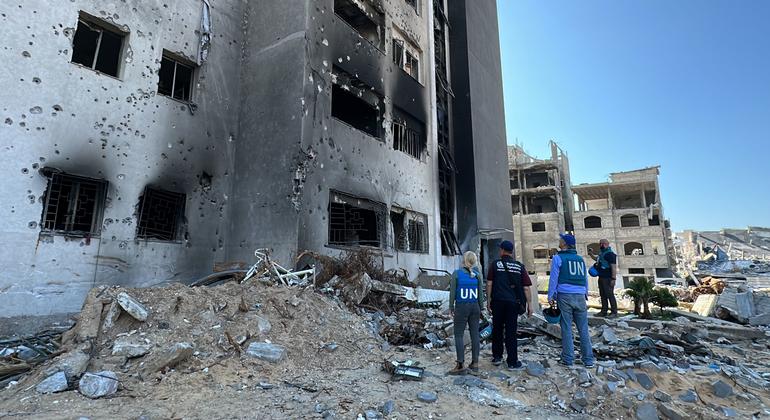Pehr Lodhammar, a senior officer from the United Nations Mine Action Service (UNMAS), highlighted the extensive amount of debris left in Gaza after nearly seven months of intense Israeli bombardment. He estimated that there are around 37 million tonnes of debris in the enclave, making it difficult to determine the exact amount of unexploded ordnance present. Lodhammar explained that every square meter in Gaza affected by the conflict contains approximately 200 kilograms of rubble, emphasizing the immense challenge of clearing the area. He noted that a significant percentage of the ammunition used in the conflict fails to function, further complicating the demining process.
Leaders of 18 nations, including the United States, issued a call for the release of all remaining hostages taken during Hamas-led terror attacks in southern Israel. Israel believes that over 130 hostages are still being held in Gaza following the attacks on October 7, which led to Israeli bombardment resulting in thousands of Palestinian casualties. The situation remains tense as efforts to secure the release of hostages continue, with international pressure mounting on Hamas to cooperate.
UN humanitarians sounded the alarm on the imminent threat of famine in the northern Gaza Strip, urging for increased aid relief to be allowed into the enclave. Despite Israel’s pledge to improve aid access through specific checkpoints, there has been only a small increase in aid volume, falling short of what is needed to prevent a famine. The World Food Programme (WFP) emphasized the urgent need for more diverse and sustained assistance in the north of Gaza, warning that the current trajectory is leading towards a famine. Concerns persist over the impact of potential ground invasions on aid distributions in already vulnerable areas.
Efforts to establish a marine corridor for humanitarian aid into Gaza have faced challenges, with the WFP emphasizing the importance of land deliveries. Amid reports of continued Israeli strikes on eastern Rafah, there are fears that a ground invasion could further disrupt aid distributions, exacerbating the humanitarian crisis. Calls for safe passage for a flotilla of boats carrying humanitarian aid to Gaza have been made by rights experts, underscoring the need for Israel to adhere to international law and allow for the delivery of essential supplies to the besieged enclave. The “Freedom Flotilla” aims to provide much-needed aid to Gaza, accompanied by international humanitarian observers.
As the situation in Gaza remains dire, with widespread debris, potential famine, and ongoing conflict, international efforts are crucial in addressing the humanitarian crisis. The urgent need for increased aid relief, diverse assistance, and safe passage for humanitarian missions underscores the complex challenges facing Gaza and the importance of coordinated action to alleviate suffering and promote peace in the region.









